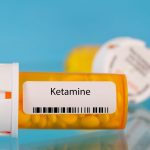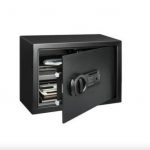Toos electric scooters are a fire hazard and people should stop using them, the U.S. Consumer Product Safety Commission (CPSC) warned Monday. The Toos Elite 60-volt electric scooters, also marketed under the name Zooz, were sold exclusively at Toos Urban Ride stores in New York and online at the Toos website. Two people recently died in an apartment fire that local fire officials determined was caused by the lithium-ion battery in a Toos Elite 60-volt scooter, the CPSC said in a news release. One of the victims of the fire, which happened April 10 in New York City, was 7, the CPSC said. The scooter that caused that fire was being charged by a 48-volt charger also sold by Toos. The CPSC said the scooter has not been certified by an accredited laboratory to the UL safety standard. UL Solutions issued a public notice concerning these 48-volt chargers because they are marked with unauthorized UL certification. Consumers should stop using the scooters, regardless of the charger used. The business, Toos Urban Ride, has refused to recall the scooters, the CPSC said. The company has said that it disagrees with the commission’s warning, noting the wrong-volt charger, 48-volt instead of 60-volt, was used to charge the scooter. Toos asserts that the CPSC technical staff evaluated a Toos 60-volt scooter and “did not identify any apparent defects… read on > read on >
A little about: Weekly Gravy
All Sauce from Weekly Gravy:
Heart Patients From Poor Neighborhoods Less Likely to Get Cardiac Rehab
Older adults who live in distressed or disadvantaged communities are less likely to attend cardiac rehabilitation after common heart procedures, new research shows. The study looked at Medicare beneficiaries’ attendance at these medically supervised exercise and education programs after coronary revascularization between 2016 and 2018. Coronary revascularization includes procedures to improve blood flow to the heart, and can involve bypass surgery or receiving a stent to keep arteries open, according to the American College of Cardiology. The authors identified disadvantaged communities using a tool called the Distressed Community Index. It analyzes economic well-being and social determinants of health, such as educational disparities and poverty rate. In all, only 26% of patients from distressed communities use cardiac rehab, the research showed. That compared to 46% of patients from wealthier areas. No matter where they lived, any patient who attended cardiac rehab had a reduced risk of premature death, hospitalization and heart attack, the study found. “Addressing barriers to participation in cardiac rehabilitation in distressed communities may improve outcomes for these patients and reduce longstanding disparities in such outcomes,” said first author Michael Thompson, an assistant professor of cardiac surgery at the University of Michigan Medical School. “While some individuals who face geographic barriers to participation may benefit from transportation services or virtual options for cardiac rehab, there is a critical need to address socioeconomic barriers that… read on > read on >
Heated Yoga Might Be a Natural Antidepressant
Heated yoga classes can help some people with depression feel a lot better within a couple months — even if they practice just once a week, a small clinical trial suggests. The study, of 65 people with moderate-to-severe depression, found that those randomly assigned to heated yoga classes saw a greater symptom improvement over eight weeks than those assigned to a waitlist. Overall, 16 patients, or 59%, “responded” to the yoga classes — meaning the severity of their depression symptoms dropped by at least half. Only two patients on the waitlist (6%) saw their symptoms improve that much. Beyond that, 12 patients in the yoga group, or 44%, saw their depression go into remission. The findings, published Oct. 23 in the Journal of Clinical Psychiatry, add to evidence that yoga can help people deal with mental health conditions. The twist was the heat. Study participants took class in a room heated to 105 degrees and followed a traditional Bikram yoga sequence — a set of 26 postures that is the same each class. It’s not clear, though, whether the heat was the key ingredient, said lead researcher Maren Nyer, an assistant professor of psychiatry at Harvard Medical School and director of yoga studies at Massachusetts General Hospital. Because the comparison was a waitlist, she said, the benefits could have come from the yoga, the heat… read on > read on >
Eating Well in Middle Age Could Help Your Brain Decades Later
Mid-life isn’t too late to make a dietary change to preserve brain health. Women who started following the diet known as DASH (Dietary Approaches to Stop Hypertension) to lower their blood pressure were about 17% less likely to report memory loss and other signs of mental decline decades later, a new study reveals. “Subjective complaints about daily cognitive performance are early predictors of more serious neurocognitive disorders such as Alzheimer’s,” senior author Yu Chen, a professor of population health at NYU Grossman School of Medicine in New York City, said in a university news release. “With more than 30 years’ follow-up, we found that the stronger the adherence to a DASH diet in midlife, the less likely women are to report cognitive issues much later in life,” Chen added. About 6.5 million Americans over age 65 were diagnosed with Alzheimer’s disease in 2022, a number that’s expected to double by 2060. Women comprise about two-thirds of those diagnosed with Alzheimer’s, the most widespread form of dementia. Research has also shown that high blood pressure, particularly in midlife, is a risk factor for cognitive (mental) decline and dementia. The DASH diet emphasizes plant-based foods that are rich in potassium, calcium and magnesium. It limits saturated fat, cholesterol, sodium and sugar. To study the impact of eating this way, researchers analyzed data from more than 5,100 women enrolled… read on > read on >
Ketamine’s Antidepressant Benefit: Is It All in Your Head?

The party drug ketamine has gotten a lot of notice for its potential to help people with severe and persistent depression who haven’t responded to other treatments. But a new study has discovered the drug’s effect may be in the heads of patients who take it. Researchers from Stanford Medicine administered either ketamine or a placebo to 40 patients with depression who were already getting anesthesia while undergoing surgery. Importantly, none of the patients or their doctors knew whether they got the drug or the placebo. What the team found came as a surprise: People in both groups reported a large improvement in depression symptoms. “What we expected was that patients who received placebo… would continue to not do much better after their procedure and their infusion and that the patients who got ketamine would do better,” said lead study author Dr. Theresa Lii, a postdoctoral scholar in the Heifets Lab at Stanford Medicine in California. “That was what we predicted. And, actually, what really surprised us is that everyone got better,” Lii said. An explanation could be that something more nebulous, maybe hope and a person’s expectations, may play a role in the drug’s success, the authors suggested. Ketamine is an anesthetic that was developed in the early 1960s. In the early 2000s, a psychiatrist started testing the drug in patients who had treatment-resistant… read on > read on >
Mediterranean Diet Plus Exercise Burns Fat, Adds Muscle

Rich in colorful fruits and vegetables, healthy fats and lean proteins, a Mediterranean style of eating consistently earns accolades for its long list of health benefits, including the prevention of heart disease and diabetes. Now, new research from Spain shows this way of eating, when combined with regular exercise and fewer calories, can slash dangerous belly fat in older folks while helping to preserve their muscle mass. Fat that accumulates around the midsection is known to cause inflammation and has been linked to heart disease, stroke, diabetes and some forms of cancer. Muscle mass is known to decline with advancing age, and this can lead to weakness, less mobility and a greater chance of falls. The study, led by researcher Dora Romaguera, from the Health Research Institute of the Balearic Islands, included just over 1,500 middle-aged and older people who were overweight or obese and had metabolic syndrome, a cluster of disorders that signal a person’s increased risk of diabetes, heart disease and stroke. One group of people followed a Mediterranean diet while cutting their calories by 30% and increasing their physical activity. They were also told to limit their consumption of processed foods, meats, butter, added sugar and to eat more whole grains. But the advice did not stop with food: They were also encouraged to increase their physical activity progressively, with a goal of walking 45 minutes per day or more on… read on > read on >
EPA to Ban Carcinogenic Chemical Found in Degreasers, Cleaners

The U.S. Environmental Protection Agency (EPA) proposes to ban a cancer-causing chemical commonly used as a furniture cleaner and degreaser. The ban would prohibit most uses of trichloroethylene (TCE) within one year. Limited remaining commercial and industrial uses would be phased out over a longer period and would require stringent worker protections. “Today, EPA is taking a vital step in our efforts to advance President Biden’s Cancer Moonshot and protect people from cancer and other serious health risks,” said EPA Deputy Administrator Janet McCabe. “The science is loud and clear on TCE. It is a dangerous toxic chemical and proposing to ban it will protect families, workers, and communities,” McCabe said in an agency news release. In addition to liver and kidney cancer, health risks associated with the toxin include disruption of the nervous and reproductive systems, and damage to fetal development, the EPA said. TCE is used in cleaning and furniture care products, degreasers, brake cleaners, and tire repair sealants. The EPA says safer alternatives exist. The proposal was made under the Toxic Substances Control Act. It would ban manufacturing, processing and distributing TCE for any use. “TCE has left a toxic legacy in communities across America. Today, EPA is taking a major step to protect people from exposure to this cancer-causing chemical,” said Michal Freedhoff, assistant administrator for the Office of Chemical Safety… read on > read on >
Steroid Use Could Raise Teen Athletes’ Odds for Concussion

Use of steroids among high school athletes is a continuing problem, and now new research finds these youths are also more likely to suffer a concussion while they play. The study was published Oct. 20 in the Journal of Osteopathic Medicine. “The neurobehavioral shifts of steroid use may lead to increased aggressive play and a subsequent heightened risk for concussions,” said researcher Kennedy Sherman, of Oklahoma State University College of Osteopathic Medicine at Cherokee Nation. “Moreover, athletes using steroids are likely to have higher muscle volume and increased muscle strength, amplifying the momentum and impact of head-on collisions,” Sherman added in a journal news release. “Steroid use and concussions each have numerous health consequences, and when occurring together in a person, these effects may be amplified.” Researchers used data from a Youth Risk Behavior Surveillance System survey, finding that 3.7% of young athletes reported previous steroid use. About 20.7% of all athletes reported having sustained a concussion. Among those who did not use steroids, nearly 20% reported a concussion, compared to about 55% of those who did use steroids. The good news? The prevalence of steroid use among high school athletes decreased from 3.4% in 1999 to 1.9% in 2019. The highest rates were in 2001 and 2003, at 5.3% and 4.4%, respectively. Use varied across ethnic groups. The highest rate was seen in the… read on > read on >
Depression Rates Rising Among College Students, and Race Matters

Many college kids are depressed and anxious, especially when they are a minority on campus or the first in their family to go to a university, a new study finds. These feelings may be particularly pronounced among minorities attending mostly white colleges, the researchers reported. In that setting, more than half of Black and Hispanic students reported feelings of mild depression and 17% more said they were moderately to severely depressed. “College life has its own sets of challenges — during COVID there were high rates of depression and anxiety suggesting that social support is an important part of college life,” said lead researcher Janani Thapa. She is an associate professor at the University of Georgia’s School of Public Health in Athens. “We must continue efforts on belonging, to make each and every student feel at home,” Thapa added. Interestingly, the researchers found that students at mostly white universities reported similar anxiety levels, regardless of race, with more than 3 in 5 students saying they experienced mild to severe anxiety levels. At historically Black colleges, students who weren’t Black also experienced higher rates of anxiety and depression. For the study, Thapa and her colleagues collected data on more than 3,000 students during the pandemic who answered questions about feelings of hopelessness, sleep problems and lack of energy. Thapa’s team found that students who were the… read on > read on >
Biometric Gun Safes Recalled After 12-Year-Old’s Death

More than 60,000 gun safes have been recalled following the death of a 12-year-old boy and dozens of reports that unauthorized people can open the Fortress Safe devices. The U.S. Consumer Product Safety Commission said a programming flaw allows unauthorized people into the biometric safe. The youth died in Nevada after he opened and allegedly accessed a gun stored inside. He suffered a “lethal gunshot wound to the head” in January 2022, according to lawsuit documents obtained by the New York Times. The boy’s father bought the safe in 2021 at a Scheels store in Nevada, the news report said. The safe uses fingerprint technology. Consumers can think they’ve set the biometric lock, allowing access only by an authorized person, but the safe remains in the “default to open” mode, the CPSC said. This allows unauthorized users, including children, to access firearms in the safe. The CPSC said there have been 39 reports of safes accessed by unpaired fingerprints. People who have these safes should immediately stop using the biometric feature, remove the batteries and only use the key, the CPSC advised. You should contact Illinois-based Fortress Safe for instructions on disabling the biometric feature. The company is also offering a free replacement safe. The recalled gun safes include portable lock boxes, personal safes, pistol vaults and gun cabinets with brand names Fortress, Cabela’s, Gettysburg… read on > read on >









